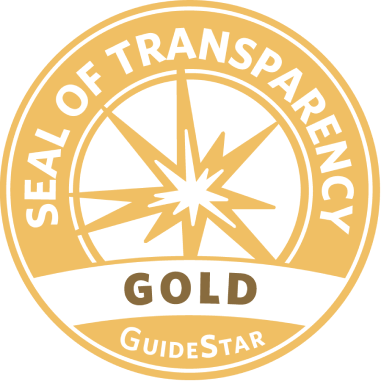Recovery from trauma, adversity, or emotional pain is not a linear journey. It is a process marked by challenges, breakthroughs, and growth. For many individuals, the path to healing can feel overwhelming, but it is important to remember that recovery is not about monumental leaps—it’s about taking small, consistent steps each day.
At the Omid Foundation, we empower adolescent girls and young women from marginalized communities to embrace these small steps as part of their healing journey. Daily practices, rooted in mindfulness, self-care, and self-compassion, can help survivors rebuild their sense of control, confidence, and well-being.
This article explores simple, yet effective, daily practices that promote recovery, providing practical strategies for individuals to incorporate into their routines.
The Power of Small Steps
Healing is not an all-or-nothing process. Small, intentional actions create a ripple effect, gradually reshaping how we think, feel, and respond to the world. These small steps offer several benefits:
Manageability: Breaking recovery into small tasks makes the process less daunting.
Consistency: Daily practices build habits that support long-term healing.
Empowerment: Small successes reinforce a sense of agency and control.
As individuals progress, these small steps accumulate into meaningful, transformative change.
Daily Practices for Recovery
- Start with Mindful Mornings
How we begin our day sets the tone for everything that follows. Incorporating mindfulness into a morning routine can help survivors feel grounded and present.
Steps to Try:
Spend 5 minutes in silence, focusing on your breath.
Write down three intentions for the day, such as practicing self-kindness or staying present.
Stretch gently to awaken your body and release tension.
At the Omid Foundation, we teach young women to embrace mindfulness as a tool for managing anxiety and building resilience.
- Practice Gratitude
Gratitude shifts focus away from pain and toward moments of positivity, however small they may be. Cultivating gratitude helps reframe challenges and fosters a sense of hope.
Steps to Try:
Keep a gratitude journal and write down three things you’re grateful for each day.
Express appreciation to someone who has supported you, whether in person, through a message, or in your thoughts.
Take a moment to notice the beauty around you, such as a blooming flower or a kind gesture.
- Nourish Your Body
Recovery is not just about emotional healing; it’s also about taking care of your physical well-being. Proper nutrition, hydration, and movement play a vital role in restoring balance.
Steps to Try:
Drink a glass of water first thing in the morning to hydrate your body.
Prepare one nutritious meal each day that includes fresh fruits, vegetables, or whole grains.
Engage in gentle movement, such as walking, yoga, or dancing, to release stress and boost endorphins.
At the Omid Foundation, we incorporate physical wellness into our programs, helping young women recognize the connection between their body and mind.
- Engage in Creative Expression
Art, music, writing, and other forms of creative expression provide a safe outlet for processing emotions and exploring inner thoughts. Creativity can also be deeply therapeutic, offering a sense of accomplishment and joy.
Steps to Try:
Spend 15 minutes sketching, painting, or doodling without worrying about the outcome.
Write a poem, journal entry, or story about how you’re feeling.
Create a playlist of songs that inspire or soothe you.
Creative workshops at the Omid Foundation allow survivors to reconnect with their emotions in a supportive and nurturing environment.
- Build a Support System
Healing is not a journey meant to be taken alone. Building and maintaining a support system helps survivors feel less isolated and more connected to others.
Steps to Try:
Reach out to a trusted friend or family member for a conversation or shared activity.
Join a support group or community organization, such as those offered by the Omid Foundation.
Practice active listening and empathy with others, fostering mutual understanding and trust.
- Set Boundaries
For many trauma survivors, learning to set and maintain boundaries is a critical part of recovery. Boundaries protect your emotional and physical well-being, allowing you to prioritize self-care.
Steps to Try:
Practice saying “no” to requests or situations that feel overwhelming.
Identify your emotional and physical limits and communicate them clearly to others.
Reflect on relationships that drain your energy and consider how to create healthier dynamics.
At the Omid Foundation, we teach young women the importance of boundary-setting as an act of self-respect and empowerment.
- Reflect and Celebrate Small Wins
Reflection helps individuals recognize their progress and maintain motivation. Celebrating small wins, no matter how insignificant they may seem, reinforces the belief that healing is possible.
Steps to Try:
At the end of each day, write down one thing you accomplished or learned.
Acknowledge your efforts, even if the outcome wasn’t perfect.
Treat yourself to a small reward, such as a favorite snack or a relaxing activity.
Overcoming Barriers to Daily Practices
While these steps are simple, survivors may face challenges in incorporating them into their lives. Common barriers include:
Feelings of Overwhelm: Trauma can make even small tasks feel insurmountable. Start with one practice and build gradually.
Self-Doubt: Survivors may feel undeserving of care or kindness. Remind yourself that healing is a journey, and every step matters.
Lack of Support: Seek out organizations like the Omid Foundation, where individuals can find encouragement and guidance.
The key is to approach daily practices with patience, compassion, and flexibility.
The Role of the Omid Foundation
At the Omid Foundation, we empower adolescent girls and young women to embrace small steps as part of their recovery. Our programs combine emotional support, life skills training, and creative activities to help survivors rebuild their confidence and resilience.
Workshops: We offer mindfulness, art therapy, and boundary-setting workshops to equip young women with practical tools for healing.
Peer Support Groups: These groups provide a safe space for individuals to share experiences, celebrate progress, and build connections.
Mentorship: Our mentors guide survivors through their journey, offering encouragement and inspiration every step of the way.
Moving Forward
Recovery is not a destination but a journey that unfolds one day at a time. By incorporating small, intentional practices into their daily lives, trauma survivors can create a foundation for healing, growth, and transformation.
At the Omid Foundation, we believe in the resilience of the human spirit and the power of community to support lasting change. By taking small steps each day, survivors can move closer to a future filled with hope, empowerment, and possibility.
Through collective action, compassion, and commitment, we can create a world where every individual has the tools and support they need to heal and thrive. Together, we can turn small steps into giant leaps toward recovery.

